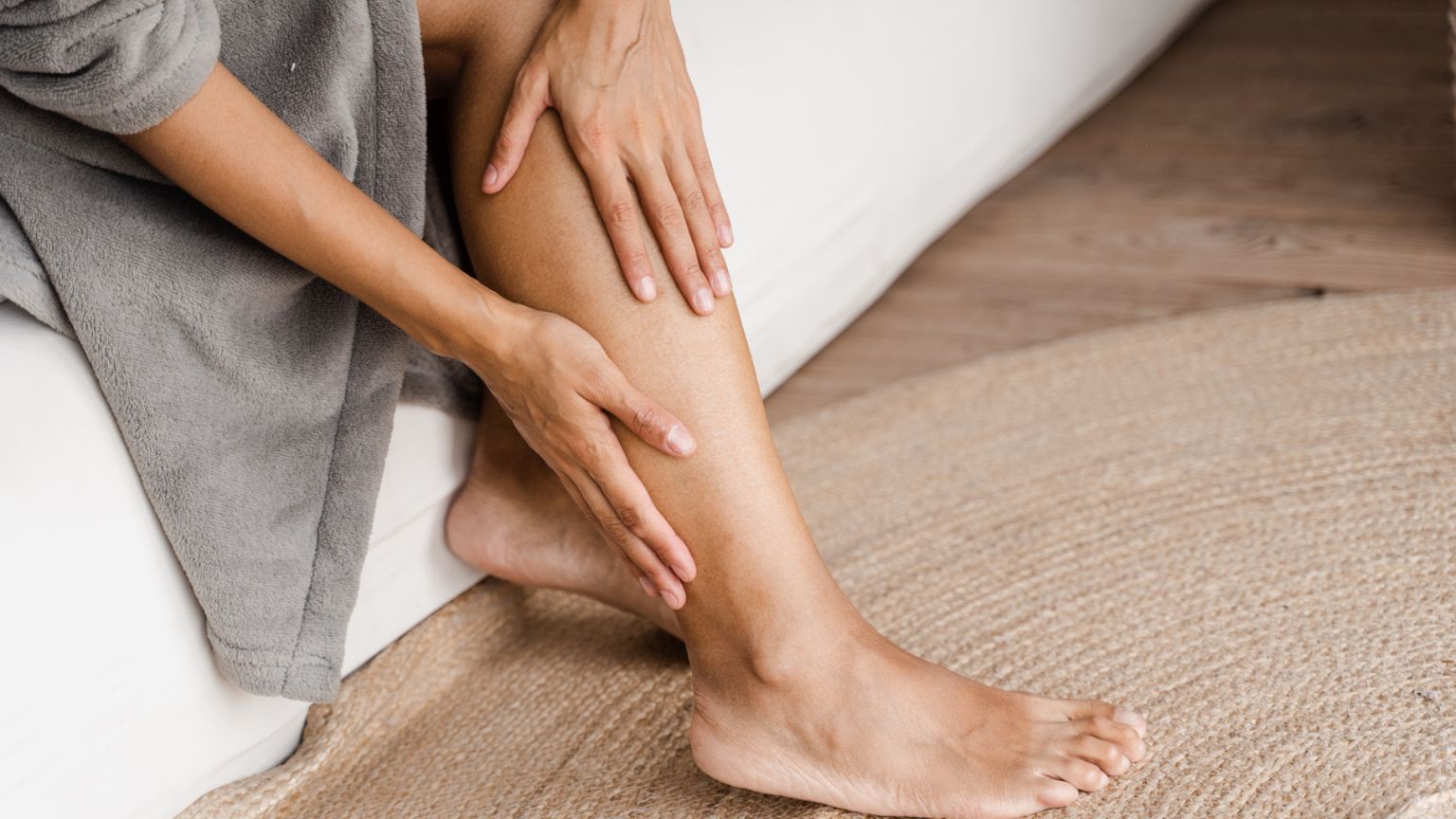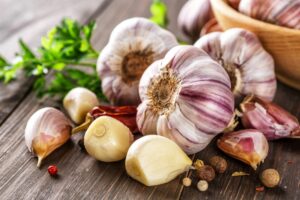If you want to feel healthy, vibrant and energised, here are some simple tactics to boost your blood health and boost blood circulation
Most of us don’t give our blood much thought, yet it’s important to know what you can do to keep it healthy. Blood makes up about 7 per cent of your body weight, that’s around 4 to 5 litres on average.
Blood is made up of 55 per cent plasma (a watery, yellowish fluid), red blood cells (which carry oxygen to the tissues and organs), white blood cells (to fight infection) and platelets (involved in the clotting process).
‘It flows through the veins, arteries and capillaries and has many different functions,’ says Dr Sarah Brewer, Consultant Medical Nutritionist.
To stay healthy, blood needs to be well nourished and flowing smoothly
‘It transports oxygen, nutrients and hormones around the body, carries carbon dioxide and other wastes away from the cells, regulates body temperature and forms blood clots to prevent excess blood loss.
‘To stay healthy, blood needs to be well nourished and flowing smoothly and your blood vessels need to be elastic. and clear of disease. There are all sorts of lifestyle factors that can affect the health of your blood.
‘These include poor eating habits, nutritional deficiencies, lack of exercise, stress, drinking too much alcohol, certain medications and exposure to chemicals and environmental toxins.
‘Over time, unhealthy blood can lead to health issues such as anaemia, high blood pressure, headaches, fatigue, breathlessness, chronic infections, allergies, skin outbreaks, varicose veins, cardiovascular disease, poor circulation, liver and kidney problems.
‘By taking steps to optimise your blood health, this will help all your body systems to function more effectively and reduce your risk of developing serious health issues’.
READ MORE: It’s time to tackle the stoma bag ‘poo taboo’
Healthy Blood Flow – Best Ways To Improve Circulation
‘Blood circulation is an essential function because it ensures that blood and oxygen continuously flow throughout the body, allowing every organ to work properly,’ says Dr Karen Breen, Consultant Haematologist at (London Bridge Hospital – part of HCA UK).
‘The circulatory system includes your heart and blood vessels, and it’s vital in keeping your body functioning. This finely tuned system carries oxygen, nutrients, electrolytes, and hormones throughout your body.
Poor blood circulation has the potential to harm the heart, kidneys, and brain
‘Blockages or diseases that affect the heart or blood flow can cause complications such as heart attack, deep vein thrombosis or stroke. This can be due a variety of disorders such as high blood pressure, high cholesterol or atherosclerosis and it is important to monitor for these conditions to reduce your risk of developing circulatory conditions.
‘Poor blood circulation has the potential to harm the heart, kidneys, and brain. When blood flow is restricted or blocked in any part of the body, this can also cause issues in other parts of the body.
‘Poor circulation in the legs, for example, can lead to varicose veins and leg ulcers. Poor arm circulation can make it difficult to use your hands. A stroke can occur as a result of poor brain circulation’.
READ MORE: HIIT or Quit? Why the well-known HIIT workout is falling out of favour
#1 Get Moving
‘Getting regular exercise has many benefits such as helping to manage weight, stabilising the heart rate and blood pressure and improving the circulation of blood around the body,’ says Dr Karen Breen.
‘Specifically, 30 minutes of aerobic exercise per day is beneficial for conditioning and strengthening the heart and blood vessels. Brisk walking outdoors if possible is one of the most effective ways to achieve this’.
going for a brisk walk every day not only improves circulation but may also cut the risk of heart disease
In one Danish study (2014) it was shown that going for a brisk walk every day not only improves circulation but may also cut the risk of heart disease and stroke by 50 per cent.
Researchers found it is exercise intensity that matter, more than duration. So, it’s better to walk faster, than take a leisurely stroll. But, any physical activity that raises your heart rate and gets you breathing faster is beneficial for blood flow – eg: walking, hiking, running, cycling and dancing, gardening, and climbing the stairs.
#2 Manage Stress Better
‘Stress is linked to heart disease in many ways, one of which is its effect on the blood pressure,’ says Dr Karen Breen.
‘Extreme stress can even be a ‘trigger’ for a heart attack. When you’re under stress, the body release stress hormones (including cortisol and adrenaline) that constrict blood flow. Stress can cause an abrupt increase in blood pressure, putting additional strain on the walls of your veins.
‘Also, some common ways of coping with stress, such as overeating, and smoking can contribute to heart disease.
‘Some ways to help manage your stress include regular exercise, listening to music or meditating, learning relaxation techniques (eg: meditation, visualisation and breathing exercises), taking up a mind body exercise (eg: yoga or t’ai chi), talking to someone you trust, such as a friend of counsellor, which can help you to put things in perspective’.
READ MORE: What is a positive mindset and why is it good for our health?
#3 Body Brushing
Improve circulation starting your day with by body brushing.
‘This increases blood flow, stimulates the lymphatic system, energises the body and exfoliates, softens and improves the condition of your skin,’ says Dr Brewer.
‘For best results do this every morning, before you bath or shower. Use a soft fibre hand brush or abrasive glove to massage all over – eg: arms, stomach, thighs, legs. Brush gently, but vigorously, towards the heart’.
#4 Supplements for Healthy Blood
Certain herbs and nutritional supplements can be very beneficial to keep your blood and circulation healthy, such as:
Gingko Biloba is used as a general tonic in Chinese Medicine. It gets the blood flowing more efficiently through the body and this improves circulation to the extremities. It improves circulation of blood, so that nutrients and oxygen get to all the tissues more effectively. It also increases blood flow to the brain.
Try: Healthspan Super Strength Gingko Biloba, £13.95 for 120 tablets
Hawthorn berry has been used in herbal medicine for centuries to keep the blood, heart and arteries healthy. Latest research shows that hawthorn can help dilate arteries, lower blood pressure, prevent blood clots and strengthen the heart muscle.
Try: A. Vogel Crataegus Tincture, £11.99 for 50ml
Horse Chestnut. Try this herb if you have varicose veins or heavy legs as a result of poor circulation. It helps to strengthen the small capillaries and improves circulation.
Try A. Vogel Venaforce, £13.99 for 30 tablets (contains horse chestnut)
the jelly surrounding tomato seeds helps to improve blood flow by keeping platelets smooth
Tomato extract from the jelly surrounding tomato seeds helps to improve blood flow by keeping platelets smooth. This may reduce clumping and offer protection against abnormal blood clotting. Studies have shown that the blood platelet enhancing effects work within 1.5 hour of taking the supplement and the benefits last for up to 24 hours.
Try: Healthspan Circulease, £15.95 for 30 tablets. Contains Fruitflow, a patented ingredient, derived from the seeds of tomatoes that has been clinically proven to reduce blood ‘stickiness’ (platelet aggregation).
READ MORE: From Shiitake Mushrooms to Reishi – 5 reasons shrooms are magical for your health
#5 Eat Nutritious Foods
‘A healthy diet is essential to reduce the risk of developing a heart disease,’ says Dr Karen Breen.
‘Limiting saturated fats, foods high in sodium and added sugars, and eating plenty of fresh fruit, vegetables, and whole grains can help you to lower your blood pressure and cholesterol – two things that can lower your risk of heart disease’.
Leafy green vegetables contain nitrates, that promote better blood flow. Nitrates are converted into nitric oxide (in the body). Nitric oxide helps to relax and dilate blood vessels, thins the blood and lowers blood pressure, improving circulation, so that oxygen circulates round the blood more efficiently.
Green vegetables that contain nitrates include: celery, spinach, collard greens, green beans, cabbage, parsley, lettuce, watercress and rocket.
consuming just 100g of beetroot juice could help significantly reduce blood pressure
Beetroot – research has indicated that drinking a 250ml glass of beetroot juice daily could significantly lower the blood pressure of people with high blood pressure. By the end of the study, participants had blood pressure levels back in the ‘normal’ range.
Another study found that consuming just 100g of beetroot juice could help significantly reduce blood pressure in as short a space of time as 24 hours!
The beneficial effect is due to high levels of nitrates which are found in beetroot. Nitrates are converted into nitric oxide by the cells that line blood vessels; this nitric oxide is a powerful dilator of blood vessels, which action results in lower blood pressure.
Try: A Vogel Biotta Beetroot Juice £4.49, 500mls
READ MORE: ‘Ditch FAD diets’ says Dr Michael Mosley – plus 7 healthy recipes for the New Year
Garlic – scientific studies show that garlic which contains the active ingredient, allicin, has many health benefits. A recent study (Biomedicine & Pharmacotherapy, 2020) shows that consuming garlic can increase blood flow to tissues and lower blood pressure by relaxing blood vessels.
In another study (The Anatolian Journal of Cardiology, 2017) it was shown that participants who consumed 1,200 mg garlic supplement, twice daily for three months, experienced a 50% improvement in blood flow, compared to the placebo group.
Try Boots Garlic Tablets
Spices such as chilli, cayenne and turmeric are excellent for circulation. Chilli and cayenne pepper for example, contain the active ingredient capsaicin, well known for its benefits to the circulatory system.
It also has natural antibacterial and analgesic (pain-killing) properties. Turmeric has a compound called curcumin, this has powerful anti-inflammatory properties that can help improve cardio-vascular health and also protect from other diseases.
Ginger also aids circulation, and it has natural warming effect. Add spices – chilli, cayenne, turmeric, ginger – to food and drinks.
Oily Fish – eat plenty of salmon, sardines, herrings, mackerel. These contain beneficial omega 3s that help to dampen down inflammation as well as having a useful thinning effect on blood. Omega-3 fish oil supplements can also help to improve circulation.
HEALTHISTA’S ANSWER TO MENOPAUSE; MENOSTART: PRESS PLAY, NOT PAUSE.
The Healthista Menopause Pack is a fully comprehensive online video workshop, led by Dr Dawn Harper; affordable, accessible and covering all aspects of the menopause, for those who need it most.
With expert advice and information from seven credible menopause industry experts, we hope that this online resource will help women navigate common health and wellness changes and challenges they may experience before, after and during the menopause.
Like this article? Sign up to our newsletter to get more articles like this delivered straight to your inbox.


























































